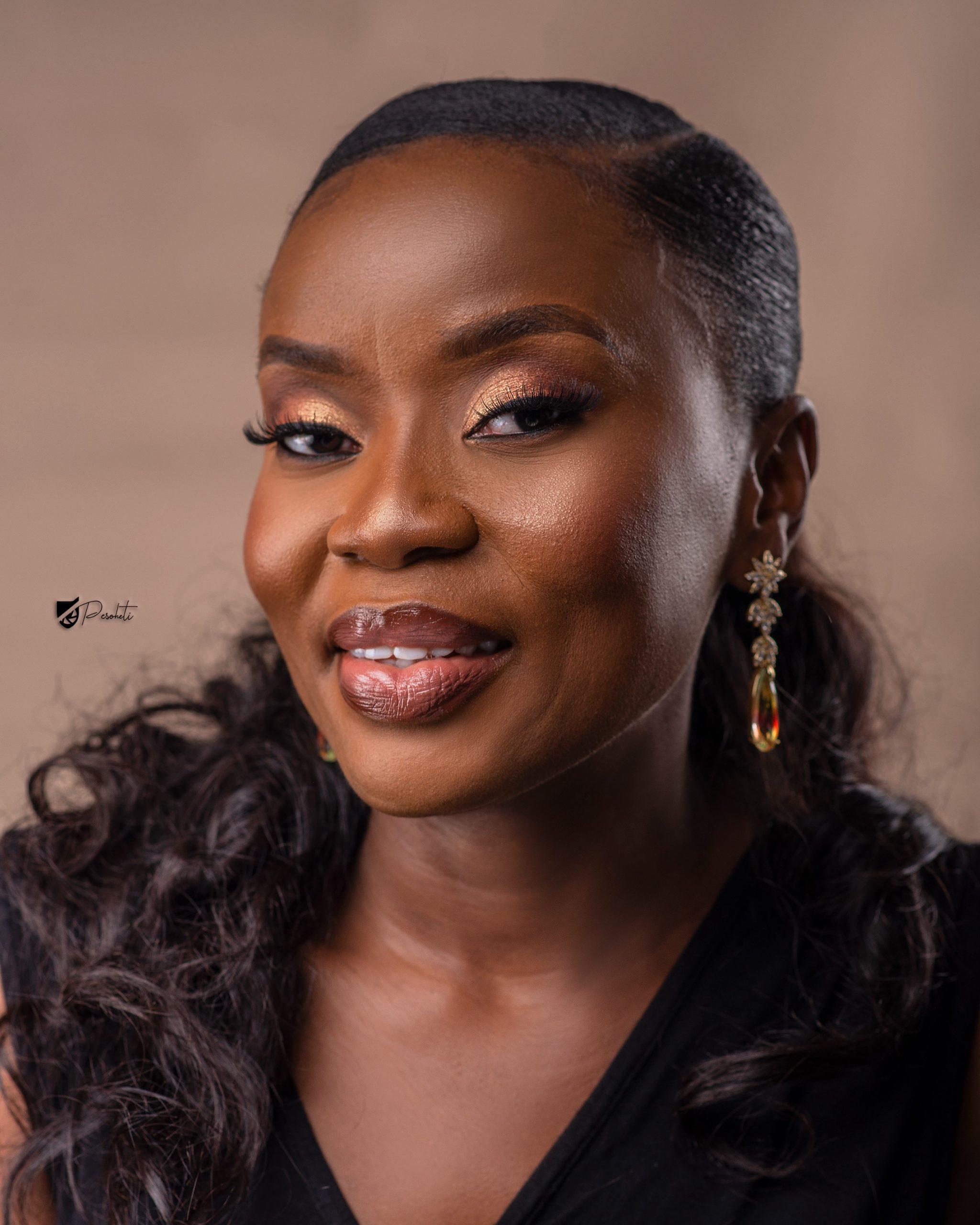Orange Corners is but one of many youth-related programmes funded by the Netherlands government. Why this focus on youth? What other programmes are out there? And what makes Orange Corners so special? We spoke to Sonia Onovughakpo Fajusigbe of the Netherlands Consulate-General in Lagos about Orange Corners Nigeria, the importance of engaging youth in your programmes and the entrepreneurial spirit of the Nigerian youth.
Hi Sonia, lovely to meet you! Could you introduce yourself to our readers?
My name is Sonia Onovughakpo Fajusigbe. I work as the Policy Advisor and Business Developer for Entrepreneurship, Youth Employment and Healthcare at the Netherlands Consulate-General in Lagos, Nigeria. The youth employment and entrepreneurship angle is related to private sector development, healthcare is more related to business development.
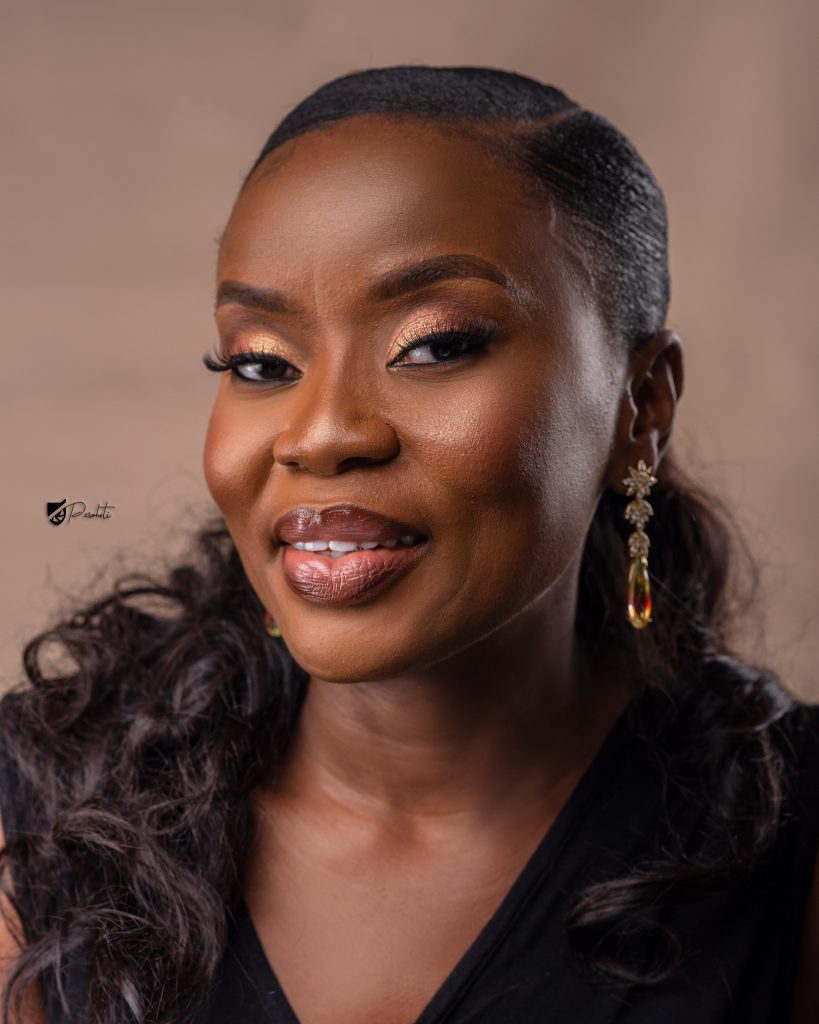
Why are youth employment and youth entrepreneurship important topics in the Nigerian context?
We have an amazing, booming entrepreneurial ecosystem, one of the most innovative in Africa. And we also have the largest young population in the world: about 70% of our population is under 30 years. So there’s so much happening. The Nigerian entrepreneurial spirit is contagious. If you come to Nigeria, you feel the vibes and you really want to stay, explore, connect and impact and of course reap a good dividend for your investment.
The Nigerian entrepreneurial spirit is contagious. When you feel the vibes, you really want to stay!
Sonia Onovughakpo Fajusigbe, Consulate-General Lagos, Nigeria
As a consulate, do you have a priority or focus regarding youth entrepreneurship?
For business development, we have four priority sectors, based on our annual plan: agriculture, renewable energy, healthcare and circular economy. And then for private sector development, we concentrate on youth employment and entrepreneurship. These are cross-cutting themes in our four priority sectors as well. All our youth programmes are driven by the Youth at Heart policy of the Dutch government. It’s very important for us that we ensure that all our programmes include the three principles of Youth at Heart: youth participation, youth engagement, and then foster and support the entrepreneurship ecosystem to enable young people become the best version of themselves, whilst fostering meaningful economic opportunities.
In addition to Orange Corners, what other programmes do you have?
Orange Corners is our flagship innovation incubation programme, which we’ve been running for the last 3.5 years. Before that, we had the LEAD or Local Employment for Development in Africa initiative, which is about to close. And there’s the Challenge Fund for Youth Employment, which is in the second round now. There’s also a programme centrally funded from The Hague, the Innovating Justice Institute The Hague HiiL. HiiL has an incubator and accelerator for startups in the area of people justice, governance, transparency and accountability. And in June 2023, we launched our Youth Advisory Committee, to really integrate the opinions and thoughts of young people in the programmes we do. Provide them with a platform where they can make meaningful contributions to the Nigerian ecosystem.
Sounds interesting! Could you tell us a little bit more about this Youth Advisory Committee?
Back in 2022, when I transitioned roles, one of my responsibilities was to set up the Youth Advisory Committee. At the start we organised the first stakeholders engagement forum with young people, but after that we gave them the floor to own the programme themselves. I think this is a good way to ensure our stakeholders buy into our programmes. We were very particular about credibility, it was all based on merit. We had an open portal where young people could apply. You had to send a video saying what you would like to achieve as a member. After shortlisting and interviewing potential candidates, we selected six members. They were inaugurated as the Youth Advisory Committee when Youth Ambassador Jurriaan Middelhoff visited in June.
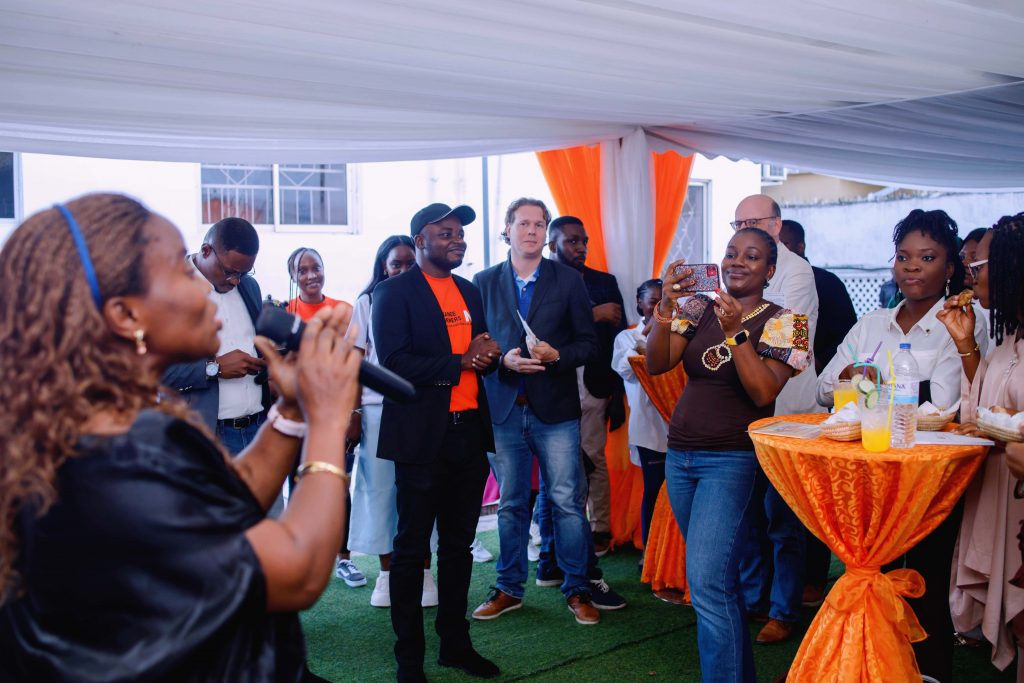
This Youth Advisory Committee is still relatively new. What have they been up to so far?
During International Youth Day, the Youth Advisory Committees for Lagos and Abuja came together to work on a project related to green skills. This is closely related to issues around unemployment. They’re currently working on that. And we’re also engaging them in the different thematic areas, they work directly with the sector leaders for different policy areas. We also plan to have them join us for visit to private partner events, VIP visits and to organise strategy sessions with them regarding our annual plan. They also create polls to drive engagement with young people during their annual youth-led event. And we actively engaged the YAC in both Lagos & Abuja in-person at the Rabat Conference in the Hague. A YAC member in Lagos also accompanied the ambassador and the Consul-Geneal on a courtesy call to the Executive Governor of Lagos state.
Orange Corners has stood the test of time with regard to continuity, quality, consistency and credibility
Sonia Onovughakpo Fajusigbe
How does Orange Corners fit into all this?
Youth is a big aspect of our work, and I think Orange Corners is wonderful. It’s our biggest programme, both in terms of impact as well as reach in the entrepreneurship ecosystem. It’s a programme that has stood the test of time with regard to continuity, quality, consistency and credibility. We have an amazing ecosystem in Nigeria, with several incubators. Orange Corners Nigeria focuses on startups in their proof of concept or ideation phase. This is one area that Orange Corners has really supported startup incubation in Nigeria.
We’ve seen incredible solutions in sectors like healthcare, renewable energy, agriculture and circular economy. If I look at it from that perspective, I think we’ve really done a lot, very impressive. We started Orange Corners Nigeria about 3.5 years ago, we have about 180 alumni from 9 cohorts till date. And some of them are really trailblazers in the different sectors they work in. So I see Orange Corners really as a way to reach out to young people and change the narrative of the entrepreneurial ecosystem in Nigeria.
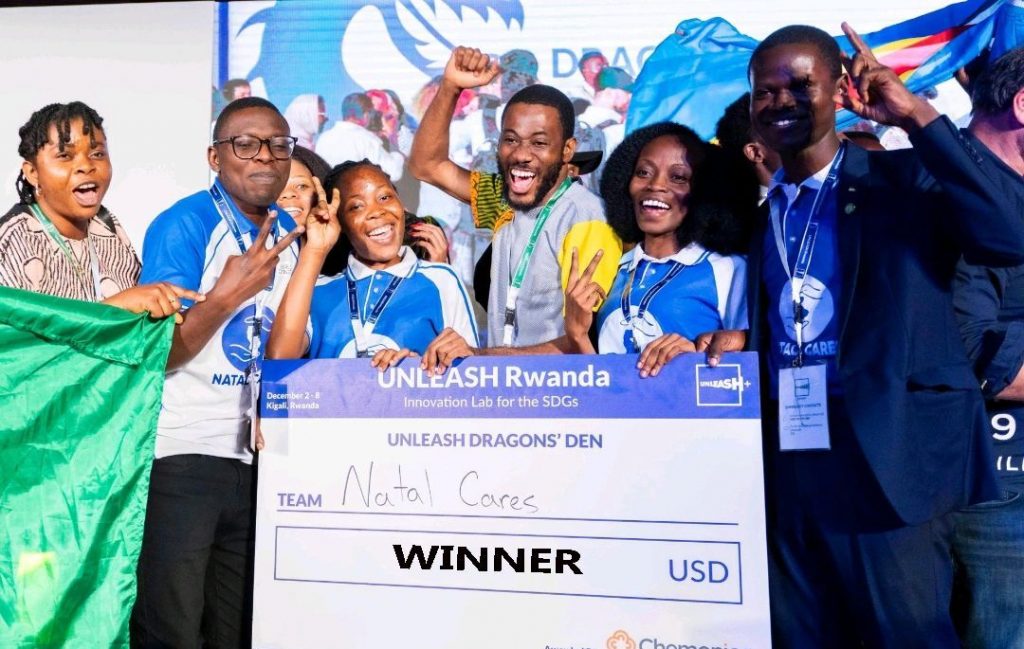
Comparing Orange Corners Nigeria to the other local Orange Corners programme, what makes it unique? Why are your entrepreneurs in particular so successful?
I think it’s about having the right implementing partner. I can’t talk about the success of Orange Corners Nigeria without mentioning Fate Foundation, the implementing partner. Amazing partnerships come with great collaboration, and the consulate and Fate Foundation are closely working together. Orange Corners Nigeria is phenomenally successful due to the robust mentorship opportunity, on-boarding and support even after the incubation programme.
Fate Foundation has existed for 20+ years, and they’ve done a lot regarding entrepreneurship, enterprise development and policy advocacy. They’re doing a great job implementing the programme and ensuring the growth, mentorship and all round development of the entrepreneurs, as well as the robust development of the ecosystem. They have certain markers through which they track the entrepreneurs. Their accountability mechanism helps the entrepreneurs become more accountable to what they do and how to efficiently use the OCIF fund.
And the reason Orange Corners works is that it’s not based on how connected you are, who you know. It’s based on credibility. You earned it, because you worked for it. You went through the bootcamps, the pitches. Orange Corners incubation is in-person, 100% in-person. It’s rigorous, but it makes you a better entrepreneur and a lot of entrepreneurs have come to realise that. It takes a lot from them, but they’re happy they did it in the end because it made them tenacious, tougher and better. And that’s another thing we own our success to.
I can’t talk about the success of Orange Corners Nigeria without mentioning Fate Foundation, the implementing partner.
Sonia Onovughakpo Fajusigbe
Aside from the programme, what makes Nigerian entrepreneurs stand out?
You know what they say about Nigerians, that we’re loud. We’re go-getters. We naturally have this entrepreneurial spirit in us. We don’t give up, we don’t say no. A no today isn’t a denial, it just means you need to wait a bit, be patient, develop some skills, competence, expertise and grit. Nigerians are tenacious. We hold onto what we believe in, we’re optimistic. Although our micro-economic conditions are on a downward trajectory, we always look at the end picture. This is what drives us. We’re always concerned about what we can do to create that meaningful change. Nigerians are always the pacesetters, this is what makes us stand out.
Looking back at the past 3.5 years, how do you evaluate our impact as Orange Corners?
We’ve created jobs. Compared to a population of 200+ million, maybe the number of jobs is relatively low, but we’ve created them. We’ve also been able to onboard the private sector as private partners. Both Dutch companies and multinationals. That in itself speaks about sustainability. That speaks about private sector ownership, partnership and strategic collaboration. For us in Nigeria, the strategic private sector alliances is one of the best things that happened to us. The realisation that we can loop a lot of partners into what we’re doing. And a lot of people are really interested in what we’re doing. In 2023 for example we closed a partnership with one of the financial institutions in Nigeria who coincidentally shares all the thematic or priority sectors with us. A big thanks to our Financial partners Coca-Cola Foundation and Sterling bank!
In onboarding private partners, we’re really going beyond the Dutch government’s initial objective, which is to support. We’re making it more robust by looping in indigenous companies and multinationals, ensuring everyone takes ownership of the ecosystem, as well as private sector development. Sustainability is no longer the Dutch government’s problem, it’s now our solution. And most of these companies have entrepreneurship and young people as part of their CSR and objectives, so it’s amazing to see we’ve been able to do that.
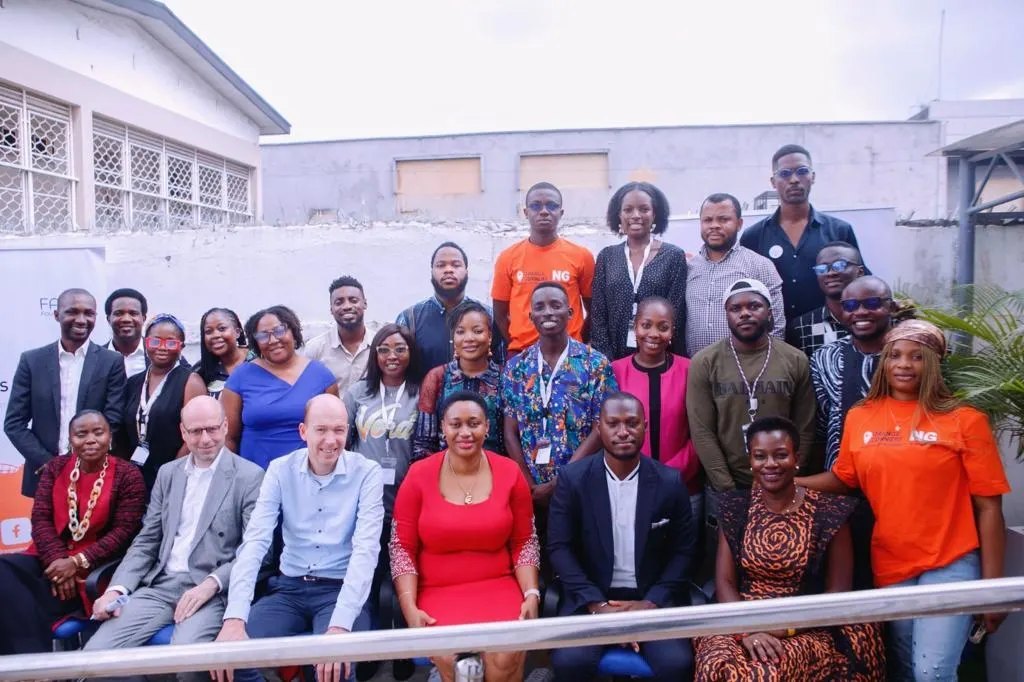
When you look at the future of Orange Corners, are there any things you would like to see happen?
One of the most important issues here in Nigeria is access to finance. There’s a stark difference between the West and Africa. In the West, you have a very supportive ecosystem for entrepreneurs. The government takes care of access to finance and provides support also, which boost your innovation index etc. But we don’t have that.
We have great solutions going through the Orange Corners programme, but I always say that like 95% of their success depends on access to finance. If 60 or 70% of the incubatees could access finance, we’d be able to make so much more impact. Not having access to finance hinders them to use the knowledge and skills they gained, or improving their business as well as employing other young people.
There’s an African proverb that says “If you want to walk fast, go alone. If you want to go far, go together”. And I think we’ve gotten to that point where we need to loop in partners, venture partners, angel investors but also HNIs or organisations interested in pre-seed funding. Not many people are willing to commit to funding these businesses, and that’s what they need. They need that $100,000 or $250,000 funding to raise their ticket sizes, grow their business before they can get that $1,000,000. We can do more if we can close this gap. It would be great if Orange Corners could explore strategic alliances with AFDB regarding pan African funding.
Follow Orange Corners Nigeria online:
Facebook
X
Instagram
LinkedIn
Follow the Netherlands Embassy in Nigeria online:
Website
Facebook
X
Instagram
LinkedIn

